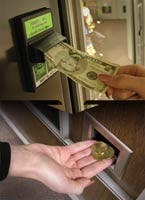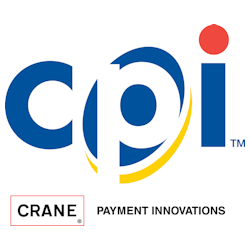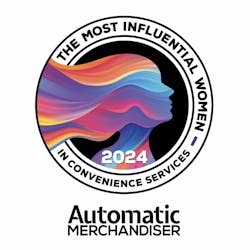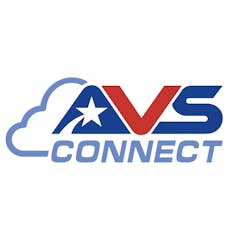New currency payment systems have more features to eliminate 'exact change only' situations. Some even recycle bills and allow multivending.
As currency handling technology evolves, vending operators are finding new tools to offer customers more convenient payment options. Operators are finding that giving consumers the ability to use whatever change they have on them ? be it all dimes or a $20 bill ? increases sales.
Technology is enhancing the versatility, reliability and durability of bill acceptors and changers. These benefits reduce consumer price resistance, and at the same time allow for a wider variety of price points in the machine. This is particularly important in machines that carry more product variety.
Dollar Coin Payout Expands
A recent Automatic Merchandiser online reader survey found that most bill acceptors accept denominations over one dollar and most pay out dollar coins as change. (See page 50.)
George Ferguson, owner of Chicago Midwest Vending Systems Inc., a 2.5-route operation in Chicago, said 5-dollar bill acceptance is a customer convenience that definitely helps sales. He said many consumers are not used to putting 5-dollar bills in vending machines, but they are more prone to do so in a newer machine.
Ferguson prefers the new 5-tube changers to the older 4-tubes since they have more capacity and allow for greater flexibility of change configuration. "Sometimes you need more of one kind (of coin) than you do of the other," he noted.
Fewer Bill Changers Needed
Like many operators, Ferguson has been able to remove a lot of his free-standing bill changers, thanks to the increased capacity of the new coin changers. "The (free-standing) changer isn't that necessary any more," he said.
Many operators also feel that higher bill denomination makes cash accounting easier. There are fewer bills to count and stack.
5-Dollar Bills Increase Bill Sorting
Five-dollar bill acceptance does create the need to sort 1s and 5s. But this can be easily overcome with a dual-pocket coin sorter.
While consumers have not gotten into the habit of carrying dollar coins in their pockets, many operators nonetheless find it worth their while to offer dollar coin payout to support higher denomination bill acceptance. This has created a need to continually replenish coin changers with dollar coins, but there is also a corresponding benefit. "The (total) coin we carry to the bank is significantly less than we used to," said Bob Yeomans, owner of Central Vending, Janesville, Wis.
Most operators interviewed said financial institutions are making dollar coins more available than they did when the new Sacagawea Golden Dollar was introduced.
Dollar Coin Payments Slowly Rise
Operators gave mixed reviews on how much the dollar coins are circulating back into the machines. But most agreed that consumers are spending them more than they initially did.
Stansfield Vending Inc. in LaCrosse, Wis. gets about 80 percent of its dollar coins back, noted Jim Wilson, vending manager. He thinks it helped that the company placed 1.5-inch square fluorescent orange signs on all of its machines advising the consumer that the machine takes dollar coins.
Noel Sims, service manager at JES Vending Inc. in St. Joseph, Mich., estimated he gets about half of his dollar coins back in the machines. He said it usually takes a few months when he introduces 5-dollar bill acceptance to a location to start seeing the dollar coins come back. He is using 5-tube changers to increase his dollar coin payout, and has recently begun using the Jofemar 5-tube changer.
Some operators still report having problems with lending institutions mixing the old Susan B. Anthony coins with the new Sacagawea coins. The problem with the Susan B's is they are often mistaken for quarters and they are not popular with consumers.
Curtis Campbell, vice president of business administration at Jackson Brothers Inc., a vending operation based in St. Louis, Mo., said his bank only provides wrapped dollar coins instead of loose coins. "We can't use wrapped coin," he complained. "We're paying the armored car company to crack it."
There have not been a lot of problems with counterfeit dollar coins, but there have been some instances where quarters have been pressed to fit into the dollar coin slot.
Counterfeit Coin Detection Improves
Greg Fernandez, customer support manager at SandenVendo America Inc., said one operator showed him quarters that had been pressed to expand in size and were accepted as dollar coins. Fernandez said his company's new 5-tube coin mech has a dip switch that activates a high security mode that detects such problems. He said this mode is not recommended for all environments, since it will also reject dollar coins that are not in the best condition.
William Cioni, president of Technivend Inc., an equipment distributor in Wilmington, Mass., said many vending machines today require a wider variety of price points. For instance, a dual temperature zone machine that has both fresh food and ambient food will have products ranging from 50 cents to $3.50.
This is also a reason that Cioni isn't closing the book on free-standing bill changers. Many operators see eliminating bill changers as one of the benefits of higher capacity bill acceptors, and in many cases it is. However, "bill changers still serve a purpose," Cioni claimed. "That's really a business plan decision."
Validators Versus Changers
Pat Malone, president of Accent Vending Inc. in San Diego, Calif., said in some cases, the cost of adding a bill acceptor to a vending machine will not be much different than simply placing a small bill changer. "That's a toss-up," he said.
Mike Coons, national sales manager at Standard Change-Makers Inc., said many operators still find bill changers more economical for larger locations. "For big banks of vending machines, it is still more economical to have one changer than to have a bill acceptor on every vending machine," he said.
Besides the investment in the bill validators, Coons said the operator will still need to make upgrades every time a new currency design is introduced.
"You need to have those (free-standing) changers available that'll hold a couple thousand quarters," agreed Wayne Snihur, director of marketing at American Changer Corp. "There's still a big need."
Managing par levels for different coin configurations is a key feature of some of the newer coin changers.
Enhanced Par Level Management
The 5-tube MEI Cashflow Series 7000 automatically manages coin levels in the changer to optimize payout and advises the driver of par values and optimum change configurations.
Craig Lewis, senior marketing manager at MEI, said a feature known as "auto-par" determines the best amount of change for a location. This is defined as the least number of coins in the change tube that still prevents "exact change needed" situations. This will vary from location to location.
The changer's software automatically reviews sales activity for the last three weeks. Tubes are automatically replenished as necessary. If a denomination is low, a yellow LED will start flashing and the screen will indicate what tubes need to be replenished and by how much.
"Keep the consumers happy and keep the location happy," Lewis said.
Another feature in the Cashflow Series 7000 is "change override." If a customer puts in a dollar for a 70 cent product and the machine is low on nickels and high on dimes, it will pay out three dimes rather than a quarter and a nickel.
"If the demand at the site changes and you can make more sales (with a different configuration), it'll do that," said Lewis. The operator has the option of disabling this feature should he so choose, Lewis noted.
The 4- and 5-tube changers aren't the only tools operators are using to increase change capacity and payout flexibility.
The Vortex? changer from Coin Acceptors Inc. contains a bulk hopper that holds up to 200 quarters, 460 dimes and 220 nickels, which is triple the capacity of most changers.
The operator sets the float level. If the operator only wants to pay out nickels and dimes, he can set the float level on quarters to zero, and the quarters inserted into the changer will go right to the cash box instead of stacking up inside the changer.
Currency Capacity Rises
The Vortex eliminates the need to add tubes to add payout capacity. "It has an enormous amount of capacity and it's extremely simple to operate," said Tom Mattingly, national service manager at Coin Acceptors.
There is another version of the Vortex that holds 115 dollar coins, Mattingly added.
Bill Gilbert, operations manager at Diverse Food Systems Inc. in Sacramento, Calif., said there is less jamming in the Vortex since there are no tubes to fill. He also thinks it is easier for drivers to simply dump change into the bulk hopper than to fill individual coin tubes.
One innovation that has attracted a lot of interest of late is the bill recycling unit developed by JCM American Corp. that is compatible with any MDB changer. The unit, known as the OptiPay, was designed for "plug and play" installation. It allows the customer to use a 5- or 10-dollar bill and receive dollar bills in change, in addition to coins.
Bill Recycler Increases Sales At Airport
Theisen Vending Co., based in Minneapolis, Minn., has witnessed excellent results with the OptiPay in a terminal at the Minneapolis Airport. "They get their paper money instead of a handful of change," said Dale Lund, operations manager at Theisen Vending Co. "It just shocks them to see dollar bills coming out of the vending machine, and it's working beautifully."
The OptiPay was particularly helpful in this situation since the airport didn't want a lot of loose change around its metal detectors.
"The airport wanted to get away from all the change," Lund said. The only other option the company would have had was to use credit card readers, which are more expensive due to the monthly charges. "We're hoping it'll delay the switch to credit card readers," he noted.
Recycler Allows Multivending
The bill recycling feature also allows for multiple purchases at the vending bank, which can increase sales. Since most customers are not aware of this possibility, the manufacturer is providing point-of-sale signs alerting them to this.
Lund at Theisen Vending said his company has placed signs to this effect at the Minneapolis Airport.
"If someone has a dollar bill, you don't lose the sale," said Tim Canale, president of Apple Vending & Amusements Inc. in Las Vegas, an operator who has installed the OptiPay on 24 of his machines.
For Canale, one of the best aspects of the unit is that it allows the operator to reduce or eliminate his escrow in a bill breaker/changer. The recycler holds up to 10 1-dollar bills or 10 5-dollar bills.
The float in the entire unit may be up to $100, depending on the number of coin tubes used, their configuration, and whether the unit is recycling 1-dollar bills or 5-dollar bills. Even if he places five of these in a vending bank, the escrow will be considerably less than a bill changer would have to be.
OptiPay Brings A 25 Percent Sales Lift
Canale claims the OptiPay has resulted in a 25 percent increase in sales, mainly because it can accept higher denomination bills.
Ron Reinking, president of Vendors Supply & Service Inc., an equipment distributor in Bloomington, Minn., thinks the OptiPay will allow operators big savings in eliminating currency changers from locations. He said many operators have thousands and thousands of dollars sitting in bill changers that aren't making them any money.
NRI, a Crane Company and a JCM technology partner, provides the technology for the coin mechanism for Optipay. Crane Merchandising Systems is the master distributor for the full-line vending market. JCM American Corp.'s direct sales team will focus their selling efforts on the OEM and bottler market.
Bill recycling has been available in some of the larger bill changers.
The front load, bill-to-bill and coin dispenser from Standard Change-Makers Inc. allows customers to use higher denomination bills and receive a choice of a predetermined amount of quarters and bills in return. The company also has a model that only dispenses bills.
Mike Coons, national sales manager at Standard Change-Makers, said the bill-to-bill dispenser, in combination with dollar coin payout, has made it possible for operators to accept higher denominations ? such as 20-dollar bills ? in vending banks.
More Players Enter The Fray
Operators have more validator and changer options available today, with more on the way. Some manufacturers, such as Sanden, Jofemar and Global Payment Technologies, are offering products in the U.S. that have already proven themselves overseas.
A & B Vending Inc. in Saugus, Mass. has been pleased with Pyramid Technologies validators which can be programmed to accept just about any denomination bill, said Bob Osgood, service manager at A & B Vending Inc.
Global Payment Technologies Inc. will be introducing a bill validator designed for the full-line vending industry, noted Wayne Morgan, vice president of global sales. This will include the patented optical sensor in the company's existing Aurora validator, which is built for harsh weather environments.
Operators need to keep abreast of new capabilities of currency payment systems to maximize their sales.
For more information, contact:
American Changer Corp., 800-741-9840
Coin Acceptors Inc., 800-325-2646
Crane Merchandising Systems, 800-345-8811
Global Payment Technologies Inc., 631-231-1177
JCM American Corp., 702-651-0000
Jofemar USA, 305-468-0302
MEI, 800-345-8215
Pyramid Technologies, 480-507-0088
SandenVendo American Inc., 800-344-7216
Standard Change-Makers Inc., 800-968-6955






